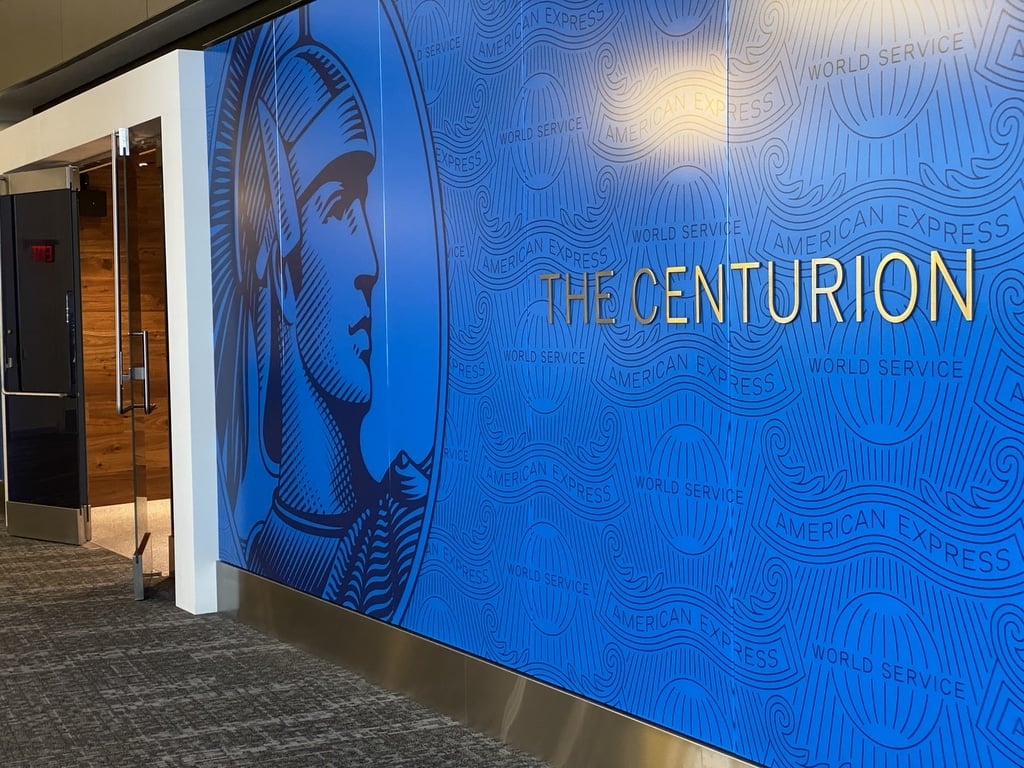This post contains references to products from one or more of our advertisers. We may receive compensation when you click on links to those products. For an explanation of our Advertising Disclosure, visit this page.
Do you think credit cards with annual fees have the best benefits? In many cases, the answer is yes. However, there are times when a fee-free credit card is better for you. We’ll take a look and help you answer the ageless question, “Are credit cards worth their annual fees?”

Terms apply to American Express benefits and offers. Enrollment may be required for select American Express benefits and offers. Visit americanexpress.com to learn more.
Are Credit Cards Worth Their Annual Fees?
Credit cards with an annual fee charge anywhere between $89 and $695. Typically, cards with the highest annual fees offer more benefits such as airport lounge access, priority boarding, elite status, and travel credits.
Cards with a low or no annual fee are more likely to only offer rewards points on purchases but only offer minimal fringe benefits.
Most cash rewards cards only offer standard benefits like purchase protection or built-in benefits that come with any Visa or Mastercard. You can learn more about these different cards if you want further information:
- Best miles credit cards (Most have an annual fee)
- Best credit cards with no annual fee
- Best cash back credit cards
So, are credit cards worth their annual fees? Let’s dive a bit deeper.
When Annual Fees Are Worth It
When you’re considering a credit card with an annual fee, you must calculate when you can “break even.” In other words, how many purchase rewards do you need to earn, or what card perks do you need to use to offset the annual fee?
The best credit cards with an annual fee often offer rewards and benefits worth more than the annual fee. A prime example is a hotel credit card with a reward anniversary night, such as the IHG One Rewards Premier Credit Card. The annual fee is $99, which can easily be offset. Use the night when the nightly rate costs more than the annual fee, and you “profit” the price difference.
Some credit cards have a free and paid version of the card.
One example is the Capital One VentureOne Rewards Credit Card ($0 annual fee) and Capital One Venture Rewards Credit Card (annual fee is $95). As you may expect, the Venture Rewards Card earns more points per purchase than the VentureOne (2x miles vs. 1.25x miles) and also reimburses your Global Entry or TSA PreCheck application fee, of up to $100. You must decide if the extra benefits are worth paying $95 a year. You can learn more in our Capital One Venture vs VentureOne comparison post.
When comparing cards with annual fees, see if they offer these benefits:
- Travel fee credits
- Hotel anniversary nights (hotel credit cards)
- Free checked bags (airline credit cards)
- Point/Mile redemption bonuses for award travel
- Ability to transfer points/miles to airline and hotel partners
- Airport lounge access
- Complimentary travel insurance
The best travel credit cards are more likely to offer additional benefits than cash rewards cards with an annual fee. Cashback cards usually offer higher cashback rates than their no-annual-fee alternatives.
When Annual Fees Are Not Worth It
Paying an annual fee isn’t worth it when you fall into one of these groups:
- Won’t spend enough to earn sufficient extra rewards
- The extra card benefits (i.e., lounge access or travel credits) don’t outvalue the annual fee
- It’s a “first credit card” with no rewards program, but you want to hold long-term to build credit
It probably doesn’t make sense to get one of the best Delta Air Lines credit cards if you never fly Delta. Or, a hotel credit card may not be worth it if you don’t use the free anniversary night. When the credit card benefits expire before you use them, it’s harder to justify paying the annual fee.
Instead of paying the annual fee, you can be better off getting a free or cheaper credit card with fewer upfront benefits. Then, you pay cash for the expenses more lavish credit cards cover. If your spending habits or lifestyle changes, you can always upgrade to a more relevant credit card at that time.
Building Credit
If you have little or no credit, it might seem that the only credit cards you apply for charge an annual fee, usually $39 per year. While these cards are a stepping stone to better cards, you should explore similar no-annual-fee cards.
The primary reason why you should choose a no-annual-fee card is that you can keep it long-term. This is a free way to improve your credit score.
Even if you rarely use the card once you upgrade to a better one, keeping the account open builds credit. Keeping the account open extends your average account age and also improves your credit utilization ratio.
If you pay an annual fee but don’t use the card, you’re more likely to cancel the card. Closing the account will temporarily penalize your credit score, and that account stops building credit.
Best Credit Cards with an Annual Fee
Credit cards are worth their annual fees when you find a credit card with an annual fee that matches your spending and travel habits can save you money. Here are some of the cards you should consider first. Remember to weigh the potential rewards with the upfront annual fee.
The Platinum Card from American Express
Frequent flyers who visit airport lounges can benefit from The Platinum Card® from American Express. But these perks can be worth significantly more.
Cardholders can get up to $200 back in statement credits each year on prepaid Fine Hotels + Resorts® or The Hotel Collection bookings with American Express Travel when they pay with the Platinum Card®. The Hotel Collection requires a minimum two-night stay.
Also, select one qualifying airline and then receive up to $200 in statement credits per calendar year when incidental fees are charged by the airline to your Card.
Plus, American Express has expanded The Centurion® Network to include 40+ Centurion Lounge and Studio locations worldwide. Now there are even more places your Platinum Card® can get you complimentary entry and exclusive perks.
Other Platinum Card from American Express Benefits
There’s also a digital entertainment credit, making this card one of the best for streaming services. Cardholders can get up to $20 in statement credits each month when they pay for eligible purchases with the Platinum Card®. Enrollment required.
In addition to enjoying TSA PreCheck or Global Entry access, cardholders can also enjoy CLEAR perks. Breeze through security with CLEAR Plus at 100+ airports, stadiums, and entertainment venues nationwide and get up to $189 back per calendar year on your Membership (subject to auto-renewal) when you use your Platinum Card®.
Another exciting benefit is the ability for cardholders to get up to $300 back each year in the form of statement credits on an Equinox+ subscription or any Equinox club membership when they pay with their Platinum Card. Enrollment required.
Plus, get a $155 Walmart+ credit, which covers the cost of a $12.95 monthly Walmart+ membership with a statement credit after you pay for Walmart+ each month with your Platinum Card. The cost includes $12.95 plus applicable local sales tax.
Get the full details and learn more in our in-depth The Platinum Card from American Express review.
The annual fee is $695 (See Rates & Fees) but can be offset with the perks, which are valued at over $1,400
Welcome Bonus Offer
New The Platinum Card® from American Express cardmembers can earn 80,000 Membership Rewards® points after spending $8,000 on purchases on their new Card in the first 6 months of Card Membership.
Chase Sapphire Preferred Card
The Chase Sapphire Preferred® Card has a $95 annual fee. It doesn’t come with “fringe benefits” like airport lounge access, but it has flexible points redemption options:
- Points are worth 1.25 cents each when redeemed for award travel on Chase
- Points are worth 1 cent each for cash and gift card rewards
- Transfer points at a 1:1 ratio to airline and hotel partners including United, Southwest, and World of Hyatt
- No foreign transaction fee
The Chase Sapphire Preferred earns unlimited:
- 5x points on travel purchased through Chase Ultimate Rewards® (excluding hotel purchases that qualify for the $50 Anniversary Hotel Credit)
- 3x points on dining (including eligible delivery services, takeout, and dining out)
- 3x points on online grocery purchases (excluding Target®, Walmart®, and wholesale clubs)
- Also 3x points on select streaming services
- 2x points on all other travel purchases
- 1x point per $1 spent on all non-bonus purchases
Additional Chase Sapphire Preferred Perks
There is a $50 annual Ultimate Rewards Hotel Credit. It comes in the form of a statement credit that will automatically be applied to your account when your card is used for hotel accommodation purchases made through the Ultimate Rewards program, up to an annual maximum accumulation of $50.
Plus, on each account anniversary, you’ll earn bonus points equal to 10% of your total purchases made the previous year. So, if you spend $25,000 on purchases, you’ll get 2,500 bonus points.
New Chase Sapphire Preferred® Card cardholders can earn 60,000 bonus points after spending $4,000 on purchases in the first 3 months from account opening. That’s $750 when redeemed through Chase Ultimate Rewards®. Member FDIC
Related: Chase Sapphire Preferred Card Review
The World of Hyatt Credit Card
Select hotel credit cards, including The World of Hyatt Credit Card, offer a free anniversary night. The free night is valid at any category 1-4 property. This benefit can easily be worth more than the annual fee. In this card’s case, the nightly rate must be higher than the card’s $95 annual fee. That can be easy to do.
Cardholders can earn 9 points for Hyatt stays (4 points per $1 spent at Hyatt hotels & 5 points per $1 you can earn as a World of Hyatt member). They also earn 2 points per $1 spent at restaurants, on airline tickets purchased directly from the airlines, on local transit and commuting, and on fitness club and gym memberships.
Additionally, The World of Hyatt Credit Card cardholders can enjoy complimentary World of Hyatt Discoverist status for as long as their account is open.
New The World of Hyatt Credit Card cardmembers can earn a signup bonus of up to 65,000 World of Hyatt Bonus Points. Earn the first 35,000 points by spending $3,000 on purchases in the first 3 months from account opening. Plus, earn up to 30,000 More Bonus Points by earning 2x Bonus Points total per $1 spent in the first 6 months from account opening on purchases that normally earn 1x Bonus Point, on up to $15,000 spent.
Limited-Time Offers
It may also be worth trying for a card when there is a good limited-time credit card offer available that you know you can earn responsibly. You may be able to earn a large number of points/miles by meeting a spending requirement in a certain amount of time. This can be good if you already have a large purchase to make and it coincides with an offer that will work for you.
Summary
Credit cards worth the annual fee should be in your wallet when the rewards points and additional benefits are worth more. If not, look for a card with a lower annual fee or no annual fee. If you mostly need a card to build a credit history, consider ones with no annual fee first.
FAQs
Is it worth getting a credit card with an annual fee?
Credit cards with an annual fee are worth it when the additional benefits provide more value than the fee. For example, if the annual fee is $95, the card’s unique rewards and benefits must be worth at least $95. If you’re considering a similar card with no annual fee, see how much more you must spend to offset the annual fee before you can start profiting from the more expensive card.
Cards without an annual fee are not worth it if you don’t use the various benefits as you “lose” money. Also, starter credit cards with an annual fee may not be useful if you plan on owning the card long-term but plan on applying for a better card as your credit score improves.
If you are a business owner, note that there are also business cards with and without annual fees. You can learn more in our best small business credit cards post.
Should I close a credit card with an annual fee?
It makes sense to close a credit card with an annual fee if the costs are higher than the ongoing benefits. For example, The Platinum Card® from American Express has a $695 annual fee (See Rates & Fees) and lots of air travel benefits. But if you never fly, you can close that account and put your money to better use.
You should also consider closing a card if you no longer use it. While having an old account is useful for building a credit history, you must decide if paying an annual fee to build credit is worth it. Your credit score will most likely drop several points, but it’s one less annual fee you must pay.
What is the best credit card with an annual fee?
When you’re getting a credit card with an annual fee, you need to choose your card carefully. Pick a card that maximizes your purchase habits and benefits that match your lifestyle. While there are plenty of options, you might consider these rewards credit cards first:
- Premium travel rewards: The Platinum Card® from American Express
- Flexible travel rewards: Chase Sapphire Preferred Card
- Airline credit card: Delta SkyMiles® Gold American Express Card
- Hotel credit card: The World of Hyatt Credit Card
- Dining and restaurants: Capital One Savor Cash Rewards Credit Card
- Grocery store purchases: Blue Cash Preferred® Card from American Express
- Small business credit card: Ink Business Preferred® Credit Card
For rates and fees of The Platinum Card® from American Express, please click here.







